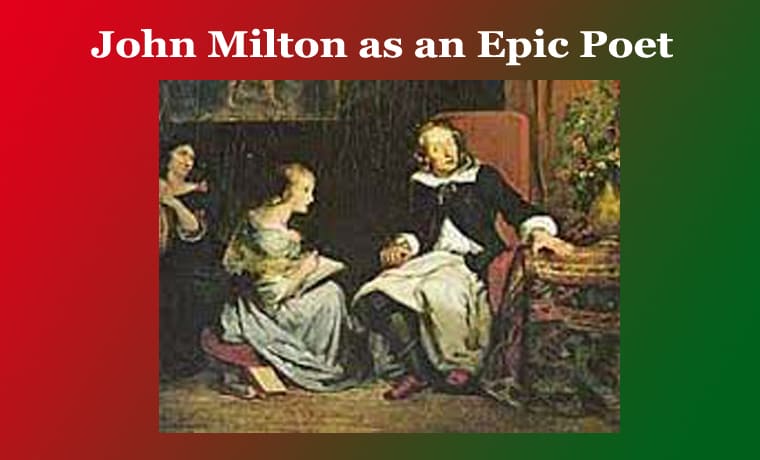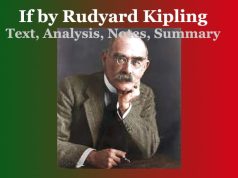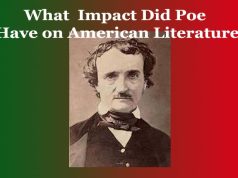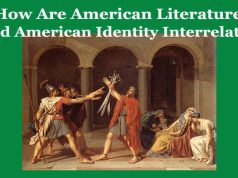John Milton as an Epic Poet
John Milton as an Epic Poet
Introduction to John Milton as an Epic poet:
John Milton, the 17th-century English poet, is celebrated for his epic works, most notably “Paradise Lost.” Milton’s prowess as an epic poet lies not only in his poetic dexterity but also in his profound intellectual engagement, theological depth, and exploration of complex moral themes. Here, we delve into the characteristics that define Milton as an epic poet:
Epic Ambition:
Milton’s choice of the epic form itself reflects his ambitious literary aspirations. The epic, a genre traditionally associated with grand themes, heroic characters, and cosmic struggles, provided Milton with a fitting canvas to explore profound theological and philosophical questions.
Heroic Subject Matter:
“Paradise Lost” centers around a heroic subject – the fall of man. Milton chooses to narrate the biblical story of Adam and Eve’s expulsion from the Garden of Eden, elevating the tale to an epic scale. The choice of such a monumental and morally charged narrative showcases Milton’s ambition to grapple with significant issues.
Use of Blank Verse:
Milton’s use of blank verse, unrhymed iambic pentameter, in “Paradise Lost” is a departure from the rhymed couplets commonly associated with the epic tradition. This choice imparts a majestic and dignified tone to the poem, creating a flexible and powerful medium for the expression of profound ideas.
Invocation of the Muse:
In the classical tradition of epic poetry, Milton begins “Paradise Lost” with an invocation to the Muse. The poet seeks divine inspiration, aligning himself with the classical poets such as Homer and Virgil who invoked the muses at the outset of their epics.
Moral and Theological Exploration:
John Milton‘s epic is not merely a retelling of a biblical story; it is a vehicle for exploring profound moral and theological questions. The poem delves into issues of free will, predestination, the nature of evil, and the consequences of disobedience. Milton’s portrayal of Satan, a complex and charismatic figure, adds layers of moral ambiguity to the narrative. John Milton as an Epic Poet
Epic Similes:
Milton employs epic similes, a hallmark of classical epic poetry, to enhance the grandeur and vividness of his descriptions. These extended comparisons draw on a wide range of references, from classical mythology to the natural world, enriching the reader’s understanding and imagination.
Heroic Characters:
While “Paradise Lost” lacks a conventional human hero, it features heroic characters such as Satan, who defies the established order. Milton’s portrayal of Satan’s charismatic rebellion against God adds a dynamic and morally complex dimension to the narrative.
Epic Scope and Structure:
The epic scope of “Paradise Lost” extends beyond the earthly realm to encompass cosmic dimensions. The narrative unfolds in a carefully structured manner, with twelve books that mirror the classical epics. The use of diverse settings, from Heaven to Hell, adds breadth to the poem’s scope. John Milton as an Epic Poet
Use of Classical and Christian Elements:
Milton seamlessly integrates classical and Christian elements in “Paradise Lost.” Drawing on his deep knowledge of classical literature, he enriches the Christian narrative with classical motifs, creating a work that bridges classical and Christian traditions.
Didactic Purpose:
Milton’s epic serves a didactic purpose, aiming to “justify the ways of God to men.” Through the exploration of sin, redemption, and the human condition, Milton seeks to impart moral and theological lessons to his readers. John Milton as an Epic Poet
Conclusion:
In conclusion, John Milton’s “Paradise Lost” stands as a monumental work in the epic tradition, showcasing the poet’s intellectual rigor, poetic skill, and audacity to tackle profound theological and moral questions. Milton’s legacy as an epic poet endures, and his contribution to the genre remains a cornerstone of English literature. 0 0 0. John Milton as an Epic Poet
John Milton as an Epic Poet
Reviews of Books by John Milton
John Milton’s ‘Paradise Lost’-A Review
John Milton’s ‘Paradise Regained’-A Review
John Milton’s ‘Areopagitica’-A Review
John Milton’s ‘The Doctrine and Discipline of Divorce’-A Review
John Milton ‘Samson Agonistes’-A Review
John Milton ‘The Tenure of Kings and Magistrates’-A Review
John Milton’s ‘The Reason of Church Government’-A Review
John Milton’s ‘Lycidas’-A Review
John Milton’s ‘Comus’-A Review
John Milton’s ‘On the Morning of Christ’s Nativity’-A Review







